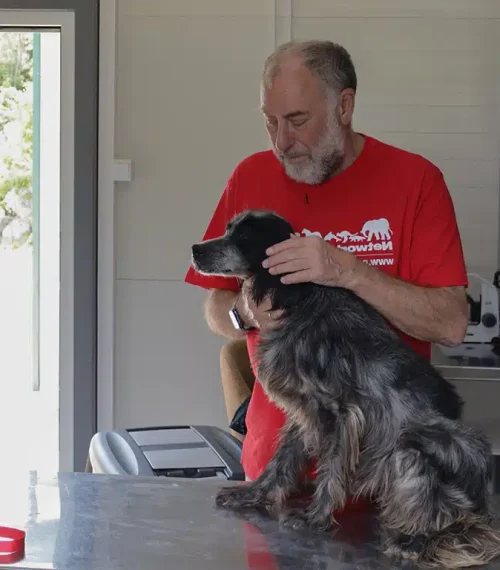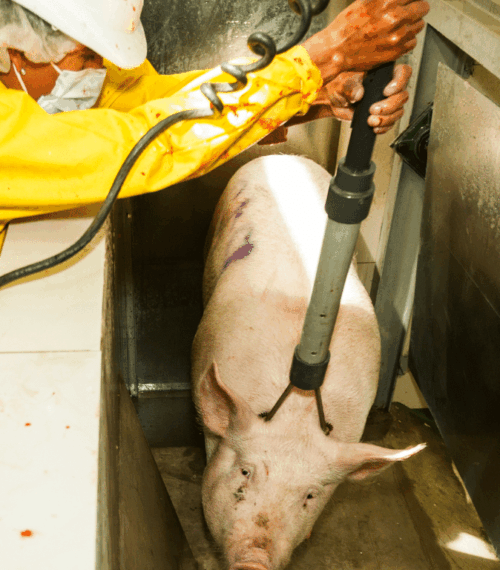As a veterinary technician, I have a lot of concerns about teacup dogs. Learn about the health risks and challenges they face, and why they may not be the ideal pet for many owners.
I’m a Vet Tech, and Here’s Why I Don’t Like Teacup Dogs

Table of Contents
- Introduction
- What Are Teacup Dogs?
- The Health Risks of Teacup Dogs
- Hypoglycemia
- Heart Problems
- Bone Fragility
- The Challenges of Caring for Teacup Dogs
- Fragile Nature of Teacup Dogs
- Extra Attention and Care Needed
- Teacup Dogs and Their Impact on Quality of Life
- The Reality of Teacup Dogs in Veterinary Care
- Why Teacup Dogs Aren’t Ideal for Many Owners
- Expensive Vet Bills
- Emotional Stress for Owners
- Alternatives to Teacup Dogs
- Conclusion
1. Introduction
As a veterinary technician, I have had the opportunity to care for a variety of dog breeds, and one breed that consistently raises concerns is the teacup dog. While these tiny dogs may seem like the perfect lap companions, the truth is that they come with a host of health problems that make them much less ideal than many potential owners may realize. In this article, I’ll share my personal experience as a vet tech, the health issues teacup dogs face, and why I believe these tiny pups may not be the best choice for many dog lovers.
2. What Are Teacup Dogs?
Teacup dogs are essentially smaller versions of small dog breeds, typically bred to be even smaller than standard miniatures. These dogs are bred specifically for their petite size, often under 5 pounds when fully grown. Common teacup dog breeds include the Chihuahua, Pomeranian, and Yorkie. Due to their tiny size, teacup dogs are often marketed as “cute” and “portable” companions, which is part of what drives their popularity.
3. The Health Risks of Teacup Dogs
3.1 Hypoglycemia
One of the most serious issues with teacup dogs is hypoglycemia, or low blood sugar. Their tiny bodies struggle to regulate glucose levels, and even minor stress or changes in their diet can lead to dangerously low blood sugar. This condition can lead to seizures, coma, and even death if left untreated.
3.2 Heart Problems
Teacup dogs are also at risk for heart problems, particularly heart murmurs and congestive heart failure. Due to their small size, their hearts must work harder to pump blood, which can lead to cardiovascular issues. Teacup dogs may also be more susceptible to heart disease because of their genetic predisposition.
3.3 Bone Fragility
The delicate bones of teacup dogs are another major concern. Due to their size, their bones are much more fragile than those of larger dogs. Teacup dogs are prone to fractures and bone injuries, and even a minor fall or bump can result in serious damage. This fragility can be life-threatening, especially if left untreated or if the injury is severe enough.
4. The Challenges of Caring for Teacup Dogs
4.1 Fragile Nature of Teacup Dogs
The primary challenge in caring for teacup dogs is their fragility. They require extra caution to avoid injury, and everyday activities like jumping off furniture or rough play can cause significant harm. Owners of teacup dogs must be vigilant in ensuring their pets are in a safe environment, which can be quite exhausting for those who are unprepared.
4.2 Extra Attention and Care Needed
Teacup dogs often require more attention than standard-sized dogs. They need frequent meals, proper temperature regulation (as they are highly sensitive to cold), and a controlled environment to avoid injury. Additionally, teacup dogs can be more prone to anxiety, requiring additional mental and emotional support. Their constant need for care can be draining, especially for busy families or first-time dog owners.
5. Teacup Dogs and Their Impact on Quality of Life
Teacup dogs may appear to have an ideal lifestyle—small and cuddly, living in luxury. However, the reality is that their health problems and fragility often diminish their quality of life. Constant trips to the vet, a restricted lifestyle to avoid injury, and a delicate body that requires constant attention can make it difficult for teacup dogs to enjoy a long, happy life. Their health conditions can lead to chronic pain and suffering, which is an issue that many teacup dog owners are not prepared to handle.
6. The Reality of Teacup Dogs in Veterinary Care
As a veterinary technician, I have witnessed firsthand the numerous challenges of caring for teacup dogs. They often come into the clinic with health issues that are a direct result of their size and breeding. Whether it’s a hypoglycemic episode or an injury, these dogs require extensive medical care that can be expensive and emotionally draining for their owners.
7. Why Teacup Dogs Aren’t Ideal for Many Owners
7.1 Expensive Vet Bills
Teacup dogs are prone to a variety of health issues that require frequent visits to the vet. Whether it’s managing their heart conditions, monitoring their blood sugar, or repairing broken bones, the cost of caring for a teacup dog can quickly add up. For many families, the financial burden of owning a teacup dog can be overwhelming.
7.2 Emotional Stress for Owners
Beyond the financial strain, caring for a teacup dog can be emotionally taxing. Their fragile health, combined with the constant need for supervision, can cause anxiety for owners. The worry about potential health crises and the constant need for vigilant care can take a toll on the emotional well-being of teacup dog owners, who often feel they are walking on eggshells to prevent their tiny pet from getting hurt.
8. Alternatives to Teacup Dogs
If you’re in the market for a small dog, there are other breeds that are healthier and more robust than teacup dogs. Breeds like the Cavalier King Charles Spaniel, French Bulldog, or Miniature Schnauzer offer small sizes without the extreme fragility and health risks of teacup dogs. These breeds can offer a similar experience to owning a small dog while providing a better quality of life for both the dog and the owner.
9. Conclusion
While teacup dogs may be adorable and popular due to their small size, the reality is that they come with a host of health problems that make them less than ideal for many owners. As a veterinary technician, I’ve seen firsthand the challenges these dogs face, from fragile bones to heart problems and the emotional strain they place on their owners. Before purchasing a teacup dog, it’s essential to weigh the potential health risks and the level of care they require. Consider adopting a more robust breed if you’re looking for a small dog, as it may offer a healthier and happier life for both you and your pet.















































































































